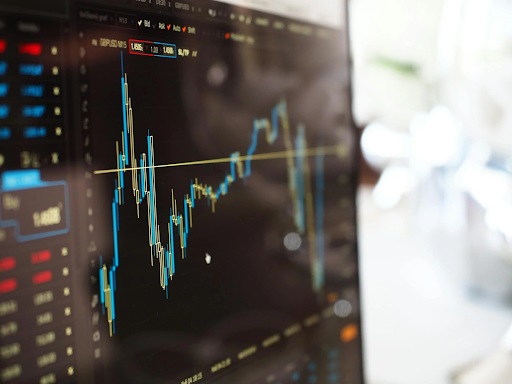Cybersecurity breaches have emerged as one of the most significant threats in the modern era, impacting businesses, governments, and individuals. With data as a vital asset, malicious actors ranging from state-sponsored groups to cybercriminals target sensitive information for espionage, financial gain, and influence. This article explores some of the most impactful cybersecurity breaches, examining their causes, effects, and the lessons they impart about safeguarding our digital world.
- The SolarWinds Hack (2020)
The SolarWinds hack is one of the most sophisticated and far-reaching cybersecurity breaches to date, revealing alarming vulnerabilities within global software supply chains.
In this breach, attackers infiltrated SolarWinds’ Orion software, a tool used by numerous organizations for network monitoring and management. Hackers linked to the Russian state-sponsored group APT29 or “Cozy Bear” managed to embed malicious code into Orion’s software updates. These compromised updates were distributed to thousands of SolarWinds customers, including high-profile clients like the U.S. Treasury Department, the Department of Homeland Security, and numerous Fortune 500 companies.
Once inside, the attackers could access sensitive information and move undetected across affected networks for several months. The complexity of this attack allowed it to bypass standard security protocols, thus calling into question the trustworthiness of software supply chains.
The attack has heightened awareness about the need for robust supply chain security and zero-trust architectures, with many organizations now re-evaluating their defenses to prevent similar incidents. The full impact of the SolarWinds breach is still being assessed, and it could take years to fully understand the extent of the damage and data exposure.
To mitigate risks, businesses should consider strengthening their supply chain security by investing in industry-recognized certifications and training programs. Understanding how to choose the best cybersecurity certification for your business is a crucial step for organizations aiming to bolster their preparedness to protect sensitive data.
- The Facebook-Cambridge Analytica Scandal (2018)
The Facebook-Cambridge Analytica scandal became a defining event in data privacy awareness, showcasing the risks associated with data misuse and inadequate user consent controls.
In 2018, Cambridge Analytica, a political data firm, gathered personal information from up to 87 million Facebook users without explicit consent. The data was collected through an app called “This Is Your Digital Life,” created by data scientist Aleksandr Kogan. While it functioned as a personality quiz, the app gathered extensive information on users and accessed the data of those users’ friends through Facebook’s structure at the time.
This information allowed Cambridge Analytica to create psychological profiles and target individuals with tailored political advertising during pivotal events like the 2016 U.S. presidential election and the Brexit referendum.
The revelation sparked global outrage and brought Facebook’s data practices under intense scrutiny, resulting in significant fines and settlements for failing to protect user information. Facebook (now Meta) ultimately agreed to a $725 million settlement to address user claims of data misuse. This scandal underscored the need for stronger data protection regulations, such as the European Union’s General Data Protection Regulation (GDPR), which enforces more stringent privacy and data management standards.
Beyond regulatory consequences, the Facebook-Cambridge Analytica scandal sparked a global conversation on data ethics and the rights of individuals over their personal information. It raised questions about how companies collect, store, and leverage user data, prompting widespread calls for greater transparency and accountability.
This incident became a catalyst for discussions around user data ownership rights, with many advocating for individuals to have more control over who accesses their data and for what purpose. The scandal also highlighted the ethical responsibility of tech companies to ensure that user data is not exploited for manipulative or invasive purposes.
As more companies handle vast quantities of user data, awareness of and adherence to privacy laws have become crucial. The incident also serves as a cautionary tale for any organization that collects or manages personal information, highlighting the importance of transparency, ethical standards, and user consent in data collection practices.
- The Marriott International Breach (2018)
Marriott International disclosed a cybersecurity breach that compromised the personal information of up to 500 million guests. Unlike other breaches, this incident extended over four years, lasting from July 2014 to September 2018. The attack targeted the Starwood guest reservation database, which Marriott had inherited in acquiring Starwood Hotels & Resorts in 2016.
The attackers accessed a wealth of guest information, including names, addresses, passport numbers, and payment card details, with some data remaining unencrypted. Given the prolonged period over which attackers had access, Marriott’s breach exposed millions of personal data, leaving guests vulnerable to identity theft and fraud.
The fallout from this breach was substantial. Marriott faced fines and settlements, including a $52 million settlement with multiple U.S. states and an £18.4 million penalty imposed by the United Kingdom’s Information Commissioner’s Office (ICO). The company was also compelled to implement significant cybersecurity upgrades to prevent future breaches.
This breach highlighted the critical importance of encrypting all sensitive customer data to prevent unauthorized access.
This incident underlined the importance of due diligence in cybersecurity during mergers and acquisitions, a common blind spot for many corporations. To protect sensitive systems, organizations should integrate industrial control systems cybersecurity into their operations, particularly in sectors where legacy infrastructure is common. Such controls are critical in ensuring that even inherited systems are secure from cyber threats.
What are the Key Lessons from Major Cybersecurity Breaches?
Each of these breaches offers valuable lessons on the nature of cyber threats and the importance of robust security practices across all organizations. Here are some essential takeaways:
- The role of supply chain security
The SolarWinds breach exposed the vulnerabilities within software supply chains, emphasizing the need for strict supplier vetting and secure update mechanisms. An essential component of supply chain security is implementing comprehensive third-party risk management practices. Companies are now focusing more on the cybersecurity posture of their suppliers and partners, recognizing that a weak link can expose their entire network.
- Data privacy and user consent matter
The Facebook-Cambridge Analytica scandal served as a wake-up call about the misuse of personal data. It illustrated the need for businesses to adopt transparent data policies and adhere to strict privacy regulations, fostering trust with users and complying with regulations like GDPR.
- Due diligence in mergers and acquisitions
The Marriott breach underscored the potential risks when acquiring new assets. Companies must perform thorough cybersecurity assessments when using new systems, particularly if they contain sensitive customer information. A secure acquisition process involves evaluating financial risks and the security measures of acquired databases.
- Improved threat detection and monitoring
These breaches all shared a common factor: the attackers could move undetected for extended periods. Organizations are nowadays investing in more advanced threat detection systems to spot unusual activity and minimize the potential impact of cyber intrusions.
- Incident response is fundamental
Having an effective incident response plan is paramount. Organizations can reduce the damage by promptly addressing breaches and potentially preventing attackers from accessing critical systems. Comprehensive response strategies also help contain public relations fallout, maintain customer trust, and meet regulatory reporting requirements.
Conclusion
The cybersecurity breaches of recent years serve as powerful reminders that digital threats are growing in complexity and sophistication. Selecting appropriate training and certifications is vital for businesses seeking to improve their cybersecurity. Choosing the best cybersecurity certification for your business can significantly enhance a team’s capacity to effectively prevent, detect, and respond to cyber threats.
Independent, accredited cybersecurity laboratories, such as CCLab, support companies in obtaining certifications while also offering essential third-party evaluations that reveal potential vulnerabilities overlooked in internal assessments.




